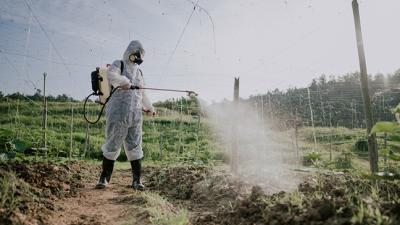RPI Autism Researcher Juergen Hahn Elected to European Academy of Sciences and Arts
Juergen Hahn, Ph.D., professor and head of the Department of Biomedical Engineering at Rensselaer Polytechnic Institute (RPI), has been elected to the prestigious European Academy of Sciences and Arts for his outstanding and sustained impact on science and society. He will be formally inducted into the organization in 2025.
Earth’s Disastrous 10th Tipping Point Has Been Identified
Tanglewood Music Center’s Fromm Quartet To Perform at EMPAC at RPI
Presented by Rensselaer Polytechnic Institute, Storytelling and Memory will be performed by the Tanglewood Music Center’s Fromm Quartet at the Curtis R. Priem Experimental Music and Performing Arts Center (EMPAC) at Rensselaer on Friday, August 2 at 7 p.m. Free admission is available by registering at https://webforms.rpi.edu/storytelling-memory-tanglewood-music-center.
Researchers Find That Frogs Can Quickly Increase Their Tolerance to Pesticides
Although there is a large body of research on pests evolving tolerances for the pesticides meant to destroy them, there have been considerably fewer studies on how non-target animals in these ecosystems may do the same.
Loss of Oxygen in Lakes and Oceans a Major Threat to Ecosystems, Society, and Planet
Oxygen is a fundamental requirement of life, and the loss of oxygen in water, referred to as aquatic deoxygenation, is a threat to life at all levels. In fact, in research recently published in Nature Ecology and Evolution, Rensselaer Polytechnic Institute’s Associate Professor Kevin Rose, Ph.D. and his collaborators describe how ongoing deoxygenation presents a major threat to the stability of the planet as a whole. Previous research has identified a suite of global scale processes, referred to as Planetary Boundaries, that regulate the overall habitability and stability of the planet. These processes include things such as climate change, land use change, and biodiversity loss. It has been argued that if critical thresholds in these processes are passed, then major ecological, economic, and social challenges are likely to result. Importantly, Rose and collaborators argue that aquatic deoxygenation both responds to, and regulates, other Planetary Boundary processes.
Rensselaer Professor Receives $3.7 Million Grant for Alzheimer’s Disease Research
Chunyu Wang, M.D., Ph.D., professor of biological sciences and chemistry and chemical biology at Rensselaer Polytechnic Institute, has been awarded a five-year grant of more than $3.7 million by the National Institutes of Health’s National Institute on Aging to study Apolipoprotein E (ApoE) isoform interactions with heparan sulfate (HS) in Alzheimer’s disease (AD).
Rensselaer Researcher Sheds New Light on Circadian Rhythms
Circadian clocks, which drive circadian rhythms, are entwined with many essential systems in living things including plants, fungi, insects, and even humans. Because of this, disruptions to our circadian clocks are linked to higher disease rates in humans, including certain cancers and autoimmune diseases. Rensselaer Polytechnic Institute’s Jennifer Hurley, Ph.D., Richard Baruch M.D. Career Development Chair and Associate Department Head of Biological Sciences, has dedicated her career to understanding the mechanisms that allow our circadian clocks to keep time.





